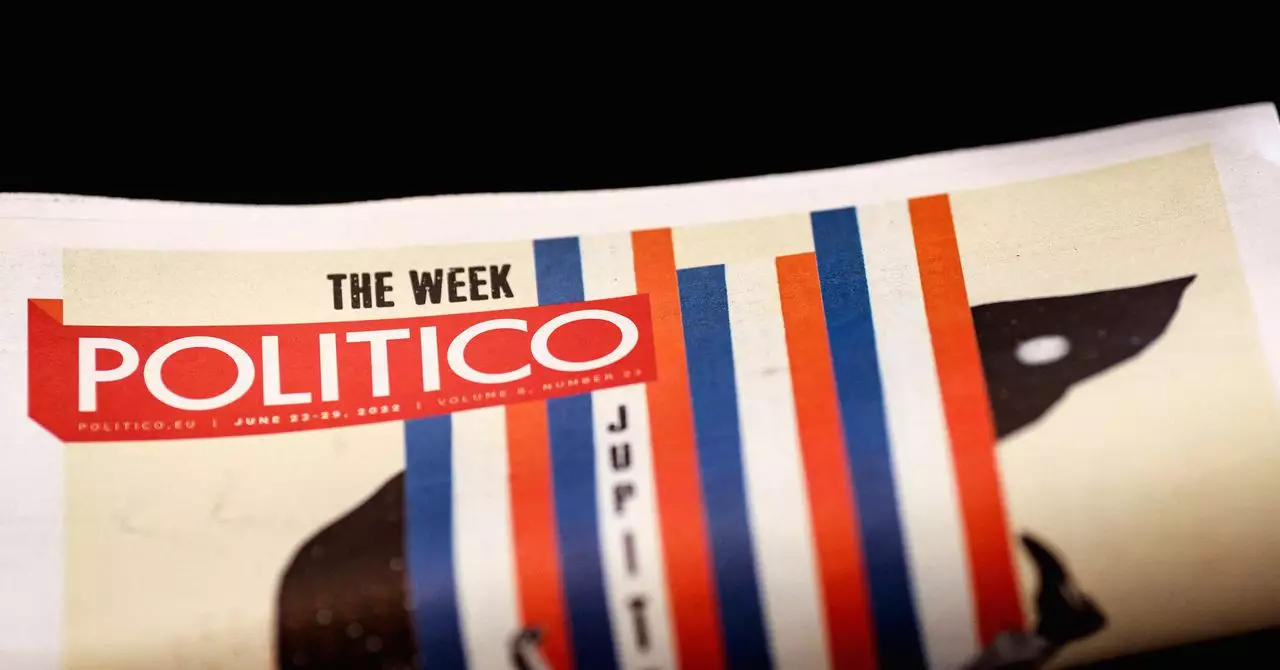As artificial intelligence (AI) technologies rapidly evolve, their integration into newsrooms is stirring significant ethical and operational challenges. One of the most compelling cases in this developing landscape is unfolding at Politico. The outlet’s recent history illustrates a troubling intersection of journalism, technology, and labor rights. With the PEN Guild, the union representing Politico staff, alleging breaches of their union contract regarding AI usage, this situation has morphed into a critical battleground for the future of journalism.
The PEN Guild’s grievances stem from a contract designed to safeguard journalistic integrity in the context of AI deployment. According to union leader Ariel Wittenberg, the staff was not adequately informed about the technological changes that were set to impact their jobs. The crux of the issue lies in the broader question: to what extent should journalists have a voice in the technologies affecting their work? This is not merely a matter of contract enforcement; it is emblematic of a deeper struggle for the very role of the journalist in an era where AI could potentially replace or overshadow their contributions.
A Precedent-Setting Legal Dispute
This legal dispute, slated for arbitration this July, is poised to set a significant precedent for media organizations across the nation. It raises pivotal questions: Should union contracts incorporate specific stipulations on AI? How much influence should journalists exert over the tools that generate content bearing their name? Union officials articulate a need for “good faith” bargaining processes, emphasizing that shared governance over technological uses should be treated as foundational to journalistic principles, not an afterthought.
In an era where technology is ubiquitous, and rapid advancements abound, many organizations prioritize technological adoption over ethical considerations. Politico’s management claims to be committed to journalistic ethics while embracing transformative technologies. Still, their approach leaves much to be desired. Union members allegedly confronted instances where AI-generated content contained language that contradicted their established ethical standards. The problematic phrasing used to describe migrants during pivotal political events serves as a glaring example of the disconnect between human oversight and machine-generated content.
The Ethical Minefield of AI-Generated Content
The use of AI-generated summaries, particularly during significant political events like the Democratic National Convention, symbolizes the broader implications of technology in journalism. While AI can process vast quantities of information rapidly, the loss of crucial editorial oversight poses significant risks. When AI-generated reports inaccurately attribute political achievements or incorporate inflammatory language, the essence of journalism as a fact-entrenched and ethical practice is jeopardized.
Critics, including members from the PEN Guild, argue that mistakes made by machine-based systems signal a dangerous trend towards automation that neglects journalistic rigor. Are we witnessing the emergence of a new normal where content accuracy and ethical standards become secondary to speed? This raises a fundamental concern: if AI systems generate content autonomously, can they uphold the values and standards that define quality journalism?
Union Voices and the Call for Oversight
As the landscape evolves, union voices must advocate for frameworks that ensure AI technologies adhere to journalistic ethics and quality requirements. With trends of unionized labor growing in the media industry, the PEN Guild’s fight could pave the way for future contracts that explicitly outline boundaries for AI usage and operational governance. There’s moral imperative in this struggle – journalists must reclaim agency over tools impacting their work, ensuring that the integrity of their reporting is not diluted in the rush towards technological advancement.
Furthermore, collaborative efforts between unions and media companies could foster environments where ethical considerations and technological innovations coexist. The elements of transparency, communication, and informed consent are non-negotiable when integrating AI into editorial practices. A path forward must include a commitment to human oversight, accountability, and ethical standards that prioritize journalism’s fundamental mission to inform the public accurately and responsibly.
Navigating the dynamic intersection between AI and journalism is fraught with challenges, but it also offers an opportunity for meaningful dialogue about accountability in modern media. As Politico’s upcoming arbitration continues to unfold, the outcome will resonate beyond its newsroom; it will shape the future strategies of media organizations grappling with the implications of an AI-driven landscape. The journalism community cannot afford to sidestep these critical conversations any longer.

